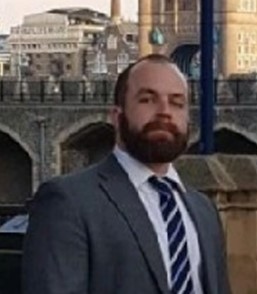
Luke Ebsworth served in the Royal Navy, for 20-years, leaving as a Chief Petty Officer in 2022. “I was responsible for routine, corrective, preventative and diagnostic maintenance of various weapons systems onboard a Warship. Responsible for maintenance and operation of various explosive stores and weapons systems. Providing essential engineering advice to the Command Team in order to reach operational requirements, leading and mentoring teams of up to 20 people. On a typical day as group head for the Weapons group I was responsible for staff appraisals, oversight of career and professional development for fifteen personnel including several senior ratings. A typical day would see a morning meeting discussing progress and areas for improvement. Engineering rounds, magazine rounds, various interface meetings. Ensuring work was conducted as planned on time and efficiently and that information and progress was well communicated to the relevant parties.
Skills I picked up whilst serving include motivation – you learn to get what’s required out of a team despite whatever environment you’re working in. Leadership – to inspire others to follow you to achieve the output, to step up and achieve the aim by leading the team using an appropriate style of leadership top the team and the situation. Also commitment – willingness and determination to achieve what you set out to regardless of what’s required to achieve this aim.
I am now an Assistant Project Manager with Mace. I registered with BuildForce initially, and support from Caroline Logan of BuildForce and initially Brian Usher of Mace followed up by Terry Price of Mace, I secured this role. I think getting on LinkedIn and reaching out to other veterans is a massive help. I got some invaluable help from people that had undergone a similar process ad some really good tips on translating your service experience into terminology that was easier to relate to the industry. It was my first interview in over twenty years so was a bit nerve racking, also I think you downplay your importance and rely on performance to demonstrate your value when serving. Civvy street is focuses on self-promotion, which certainly felt very alien to me.
I am working on the electrical packages for a new submarine berth. I have managed to take some of my electrical knowledge and military experience into my new role but whilst having some cross transferable skills there is still a vast amount of knowledge to absorb and processes to unravel. It is a tough job but also very rewarding when you see an impact you have made affect the overall project.
A typical day in the PM world entails a lot of meetings to discuss progress, plans, schedules, designs, safety, co-ordination with other works packages to name but a few. There’s a lot of checking of what needs to be done is with the correct people to progress the work, then checking they are doing what’s required. I like to get out on the site as well to witness the physical works being implemented and also to monitor the delivery and interfaces out on the ground. It’s a complex ever changing environment and requires a lot of adapting to the situation as it occurs, whilst extremely challenging at times it can also be equally rewarding. There’s a lot of complex interfaces with stakeholders, lot of planning and management all of which are transferrable skills. Also, the ability to work well under pressure is a great strength from the military.
Advice I would give to someone who is leaving the Armed Forces and seeking a new career in construction is expand your network, reach out to as many companies as possible, talk to as many people as you can. Never turn down the offer of advice, you don’t have to take it – but it might turn out to be useful. Spend some time looking at terminology in the construction/project process and see how these are transferrable into your military experience. Have self-confidence, adapting to new environments and overcoming problems is something you excel at!
Three words I would you use to describe a career in the construction industry is complex, challenging an rewarding. And to describe a Veteran, I would say focused, diligent and adaptive.”